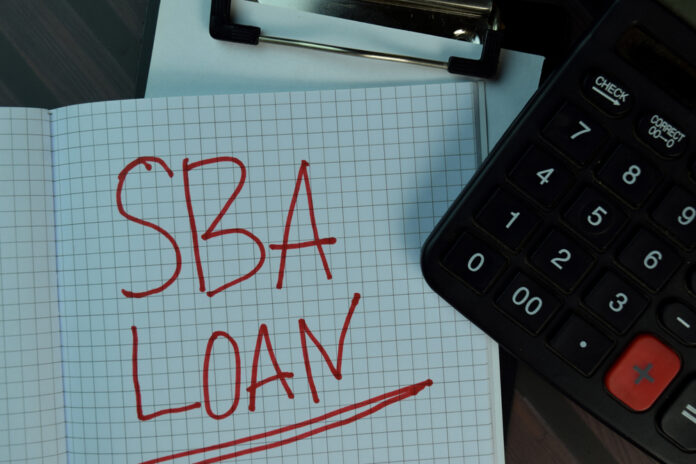Securing funding is often one of the most significant hurdles for small business owners. The U.S. Small Business Administration (SBA) offers several loan programs designed to bridge this gap, providing vital capital for starting, managing, and growing a business. While SBA loans are attractive due to their favorable terms and government backing, navigating the specifics can be daunting. Understanding the key terms associated with these loans is crucial before you apply.
What are SBA Loans?
It’s important first to clarify that the SBA doesn’t typically lend money directly. Instead, it provides a guarantee to participating lenders (like banks and credit unions) for a portion of the loan. This guarantee reduces the lender’s risk, making them more willing to offer loans with favorable terms to small businesses that might not otherwise qualify.
The most common SBA loan programs include:
- SBA 7(a) Loans
- SBA 504 Loans
- SBA Microloans
While each program has nuances, many core loan terms apply across the board.
Key SBA Loan Terms Explained
Understanding the following terms is essential when considering an SBA-guaranteed loan:
1. Loan Amount:
The maximum loan amount varies by program, and ranges from $500 to $5.5 million. The actual amount you qualify for depends on your business’s needs, creditworthiness, repayment ability, and the lender’s assessment.
2. Interest Rates:
SBA loans can have fixed or variable interest rates. Generally, SBA-guaranteed loans offer competitive, often lower, interest rates compared to conventional business loans, especially for longer terms.
3. Repayment Terms (Loan Maturity):
The repayment period, or loan maturity, depends on the loan program and the purpose of the funds.
Longer repayment terms result in lower monthly payments, improving cash flow, but mean paying more interest over the life of the loan.
4. Guaranty Fees:
Since the SBA guarantees a portion of the loan for the lender, it charges the lender a guaranty fee. The lender usually passes this fee onto the borrower. The fee is calculated as a percentage of the guaranteed amount and varies based on the loan size and maturity.
5. Down Payment / Equity Injection:
Most SBA loans require the borrower to contribute some of their own capital, known as an equity injection or down payment. This demonstrates commitment and reduces risk for the lender and the SBA. The required amount varies but typically ranges from 10% to 30% of the total project cost. For instance, a significant equity injection for SBA 7a loans used for business acquisition or real estate purchase is standard practice. This injection can come from personal cash, assets unrelated to the business being financed, or sometimes even subordinate debt (debt that ranks below the SBA loan for repayment). Check current SBA 7a equity injection requirements for more detail.
6. Collateral:
Collateral is property or other assets that a borrower offers as security for a loan. If the borrower defaults on the loan, the lender can seize and sell the collateral to recoup its losses.
7. Personal Guarantee:
A personal guarantee is a common requirement for SBA loans. It means that if the business defaults on the loan, the owner(s) are personally responsible for repaying the outstanding debt. The SBA generally requires personal guarantees from all individuals owning 20% or more of the business.
8. Prepayment Penalties:
Some SBA loans have penalties if you settle the loan significantly earlier than scheduled (usually within the first few years), whereby you might incur an additional fee. The SBA sets limits on these penalties (known as the “5-3-1” rule for 7(a) loans: 5% in year one, 3% in year two, 1% in year three).
9. Use of Proceeds:
SBA loans have specific guidelines on how the funds can be used. Eligible uses generally include working capital, inventory, equipment, purchasing land or buildings, construction, renovation, refinancing existing debt (under certain conditions), and acquiring another business. Using loan funds for purposes not approved by the SBA can lead to serious consequences.
Navigating the Process
The SBA loan application process is known for being thorough and requiring significant documentation. Understanding these terms before you apply helps you prepare your application effectively, assess affordability, and compare offers from different lenders. While some terms, like maximum interest rates and guaranty fees, are set by the SBA, others, like the specific interest rate spread or collateral requirements, may have some room for negotiation with the lender based on the strength of your application.
SBA loans are a powerful tool for small business financing, but they come with specific terms and conditions that borrowers must understand. From interest rates and repayment periods to guaranty fees and equity requirements, each term impacts your financial obligations and the overall cost of borrowing. By familiarizing yourself with these key elements, you can approach the application process with confidence, secure the funding your business needs, and set yourself up for sustainable growth.
Always perform due diligence and consider seeking advice from financial advisors or SBA resource partners (like SBDCs or SCORE) to navigate the complexities effectively.
Find a Home-Based Business to Start-Up >>> Hundreds of Business Listings.














































